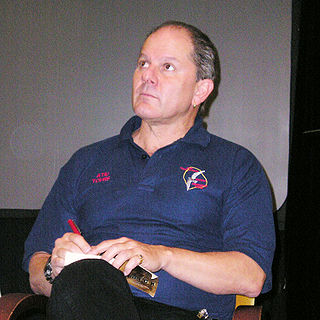A Quote by Ani DiFranco
My writing just kind of exists out there in the air-it's all sort of intended as spoken, or sung, word. So, to commit them to the page...that way was kind of intimidating to me, yet intriguing, to try to reflect the rhythms and connotations and emotions that you can deliver, speaking-wise, on a page.
Related Quotes
When you're reading a newspaper and you're seeing ads on the page, it's not kind of invasive. Like, it's on the page next to the article. You can look at it or not. You can turn the page when you're ready. On the internet, the ads - many of the ads - just are so controlling. They insist that you see them.
Yes, the fear of its blankness. At the same time, I kind of loved it. Mallarmé was trying to make the page a blank page. But if you're going to make the page a blank page, it's not just the absence of something, it has to become something else. It has to be material, it has to be this thing. I wanted to turn a page into a thing.
When I'm writing comics, I'm also visualizing how the story will look on the page - not even always art-wise, but panel-wise, like how a moment will be enhanced dramatically by simply turning a page and getting a reveal. It requires thinking about story in a way I never had to consider when I was writing prose.
When you are writing a spoken word poem, the tools you're working with are your voice, your body, how it's going to sound to someone when you're saying it out loud. Which is different from when you're writing it on the page. That toolbox becomes how does this look visually on the page, how does this read among pages, how is this in relation to poems that are before it or after it. I don't think one is better or more successful than the other. You've just gotta think about "what are the tools I'm using, and how are they most effective in this form?"
I have a sustained interest in frippery. I can't refute the monster accusation, either. Some writers are awful on the page and kind in person. More often it's the other way around. I'd say I'm probably the same amount of asshole on the page as in life. I do try to be entertaining about it, however - in both places.
I'm not particularly good at page layouts. I make an effort to stay out of the way of the artist. What I'll try to express instead is, 'What we're going for here on this page is the idea of the containment of these women's bodies. So I want them framed as though they're bursting out of the panel borders.'
If it bothers me on the page, I don't do it. If it attracts me on the page and moves me, makes me think a bit, makes me laugh, makes me cry, I'm interested in it. If it's there on the page, it means it's there and up to me to bring it out. I have done some films along the way that have been screwed up and not as good as they read. Some films that are not that good on the page turn into good movies. So I'm fallible is what I'm saying.



































